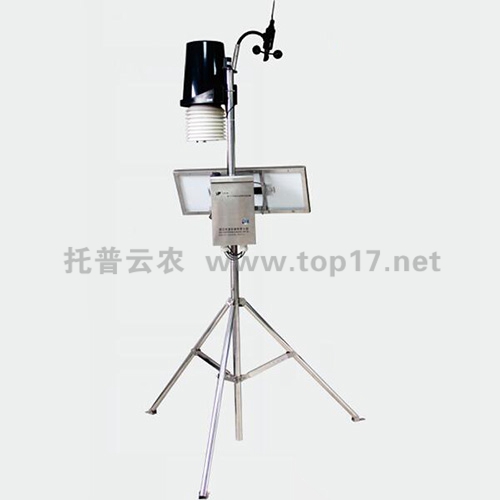People engaged in agricultural production know that the growth of crops is closely related to the climate. Changes in meteorological factors such as sunshine, temperature, humidity, and precipitation all affect the yield and quality of crops. Therefore, in order to do a good job in agricultural production, we must pay close attention to climate change and arrange farming in advance according to weather forecasts. In the past, people learned that meteorology mainly passed through the meteorological department. Now, with the development of the industry, the agricultural meteorological station began to provide real-time and refined meteorological services for the majority of farmers, and escorted agricultural production. Take the production of citrus groves as an example. Planting oranges should be described as 'three avoidance', that is, shelter from the rain, cold and sun. If there is a large temperature drop, it is necessary to cover the film in advance, but to do these things, it is inseparable from the weather. Monitoring work. The agricultural weather station installed in the citrus garden can automatically monitor and record important agro-meteorological parameters such as temperature, humidity and illuminance, so that managers can arrange labor according to this reason, realize profit and avoid harm, and strive for labor efficiency in agricultural production. Maximize. Although the meteorological environment is extremely volatile and elusive, the use of agricultural meteorological stations to monitor the environmental elements in the orchard in real time allows managers to grasp the changes in agricultural microclimate more accurately, which is conducive to scientific guidance for fruit farmers to carry out daily care, pests and diseases and agrometeorological disaster prevention. Work, through multi-dimensional information and multi-level processing to achieve optimal growth environment conditioning and fertilization management of crops, improve the yield and quality of citrus. For a long time, it is no longer a matter of “depending on the skyâ€, but it is a good wish of farmers and the meteorological department to use the weather forecast to avoid disadvantages and even use the weather to serve the agriculture. Now, with the help of intelligent weather monitoring systems such as agricultural weather stations, this vision is gradually becoming a reality, and farmers' friends no longer have to worry about weather disasters. Not only is agricultural production more secure, but planting output and quality are also constantly improving, and the development of various characteristic industries is in full swing.
Food additives refer to chemical synthetic
or natural substances added to food to improve food quality and color, aroma
and taste, as well as for the needs of preservative and processing processes.
Food additives have greatly promoted the
development of the food industry and are known as the soul of the modern food
industry, which is mainly because it brings many benefits to the food industry,
and its main roles are roughly as follows:
Prevent deterioration; Improve food sensory
traits; Maintain enhanced nutritional value; Increased variety and convenience;
Facilitate food processing as well as other special needs.
There are 35 types of food additives in
China's commodity classification, including flavor enhancers, defoamers,
leavening agents, colorants, preservatives, etc., and more than 10,000 kinds of
foods containing additives.
Flavour Enhance,Emulsifier For Food,Food Additives List,Stabilizer For Food WUHAN RUISUNNY CHEMICAL CO. LTD , https://www.ruisunny-chem.com
Agricultural weather station escorts citrus garden production